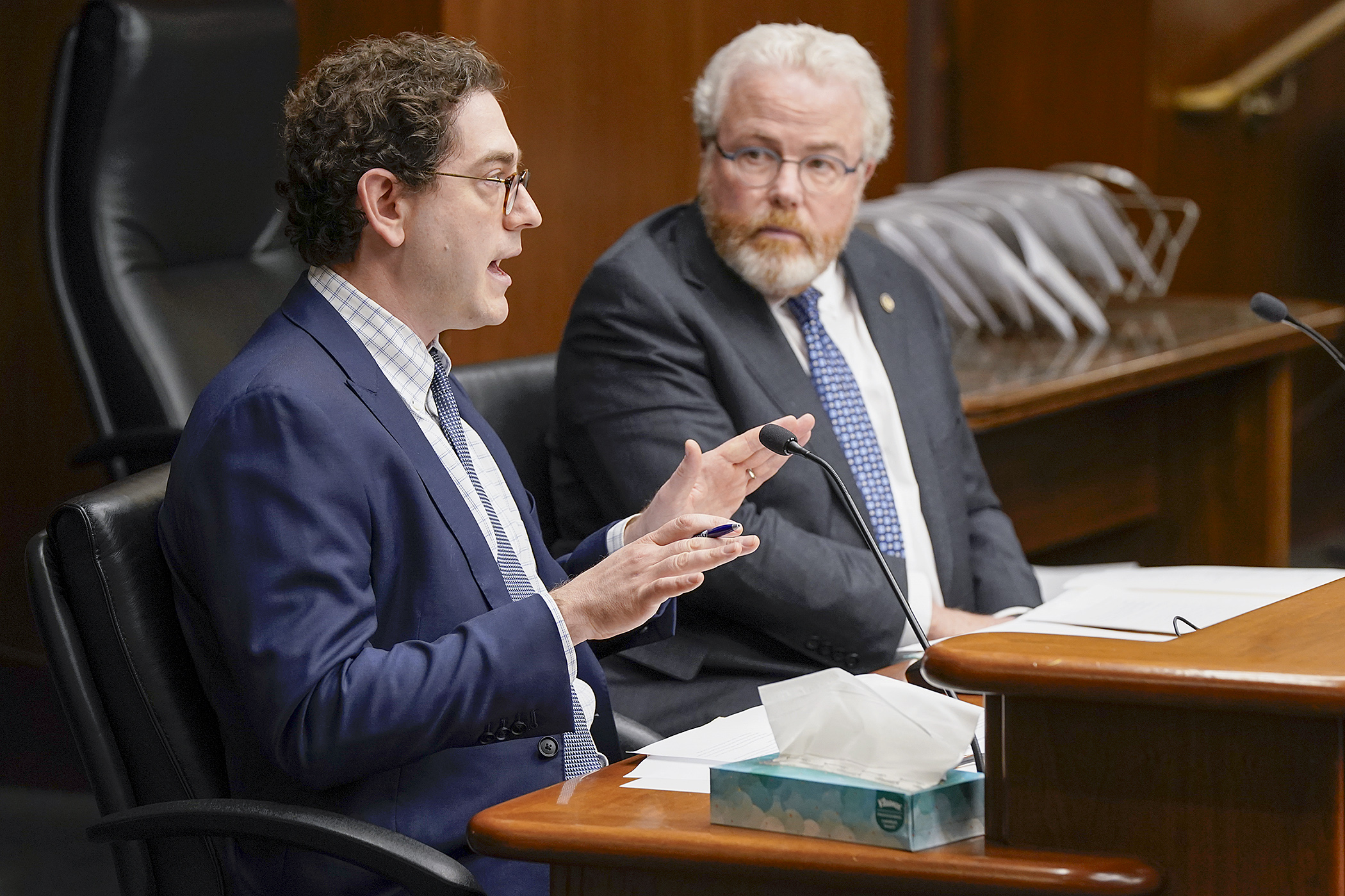Bill seeks to remove funding barriers for renewable energy projects

Is Minnesota keeping pace when it comes to C-PACE?
That stands for “commercial property assessed clean energy,” a type of private financing for building projects that improve sustainability and reduce energy bills.
Minnesota is one of 32 states that has active C-PACE projects, but…
“In recent years, Minnesota has fallen behind other states in the total volume of C-PACE projects being undertaken,” Rep. Ned Carroll (DFL-Plymouth) told the House Climate and Energy Finance and Policy Committee Tuesday. “It’s primarily due to our now outdated enabling legislation, which contains restrictions not found in other states. … There were 28 C-PACE projects closed in Minnesota last year, down from 53 projects in 2022.”
Carroll is hoping to beef up the C-PACE projects with HF3946, which would remove restrictions and extend the timeline for funding. The committee laid the bill over, as amended, for possible inclusion in a larger climate and energy bill.
Although administered by the St. Paul Port Authority, the state’s C-PACE program is privately financed. The bill would broaden the program to allow for loans to projects that improve a property’s resilience — such as resistance to wind, fire and flooding, improvements to indoor air quality or mitigating stormwater runoff — conserve a property’s water use or improve its water quality.
Two proposed changes would make it so Minnesota is no longer “the state of the twenties,” said Rafi Golberstein, chief executive officer of Pace Loan Group.
Minnesota is the only state with a maximum financing term of 20 years for a C-PACE project and a maximum loan amount of 20% of a property’s assessed value. The bill would expand that to 30 years and 30% of the value.
The bill would also:
- remove the requirement that projects be cost-effective, which Golberstein said has hindered electrification and decarbonization projects;
- allow the financing of energy projects that include fuel-switching; and
- no longer require an energy project to lower net energy consumption, provided that greenhouse gas emissions are reduced.
Rep. Chris Swedzinski (R-Ghent) asked Golberstein what the bill’s changes might mean for the program in Minnesota.
“The 30-year amortization and the 30% loan-to-value would significantly increase volume,” Golberstein said. “You’re just going to see larger deals, in general. And we will see significantly more projects qualify for PACE than we currently do.”
But Rep. Marion Rarick (R-Maple Lake) expressed concern that eliminating the language about cost-effectiveness would end up making it more expensive to do business in the state.
Since lending began after enabling legislation in Minnesota was passed in 2010, 533 projects have received approximately $326 million in funding, according to Clean Energy Economy Minnesota.
Related Articles
Search Session Daily
Advanced Search OptionsPriority Dailies
Speaker Emerita Melissa Hortman, husband killed in attack
By HPIS Staff House Speaker Emerita Melissa Hortman (DFL-Brooklyn Park) and her husband, Mark, were fatally shot in their home early Saturday morning.
Gov. Tim Walz announced the news dur...
House Speaker Emerita Melissa Hortman (DFL-Brooklyn Park) and her husband, Mark, were fatally shot in their home early Saturday morning.
Gov. Tim Walz announced the news dur...
Lawmakers deliver budget bills to governor's desk in one-day special session
By Mike Cook About that talk of needing all 21 hours left in a legislative day to complete a special session?
House members were more than up to the challenge Monday. Beginning at 10 a.m...
About that talk of needing all 21 hours left in a legislative day to complete a special session?
House members were more than up to the challenge Monday. Beginning at 10 a.m...